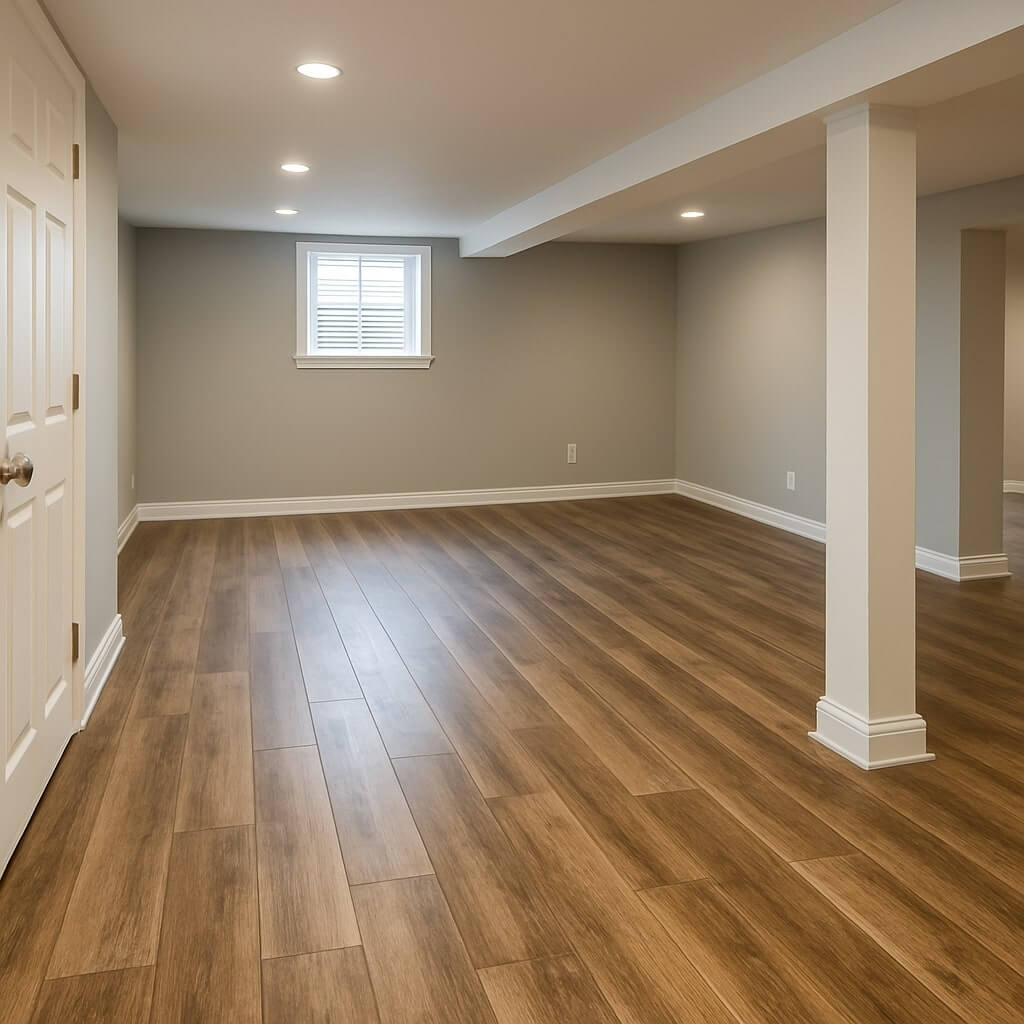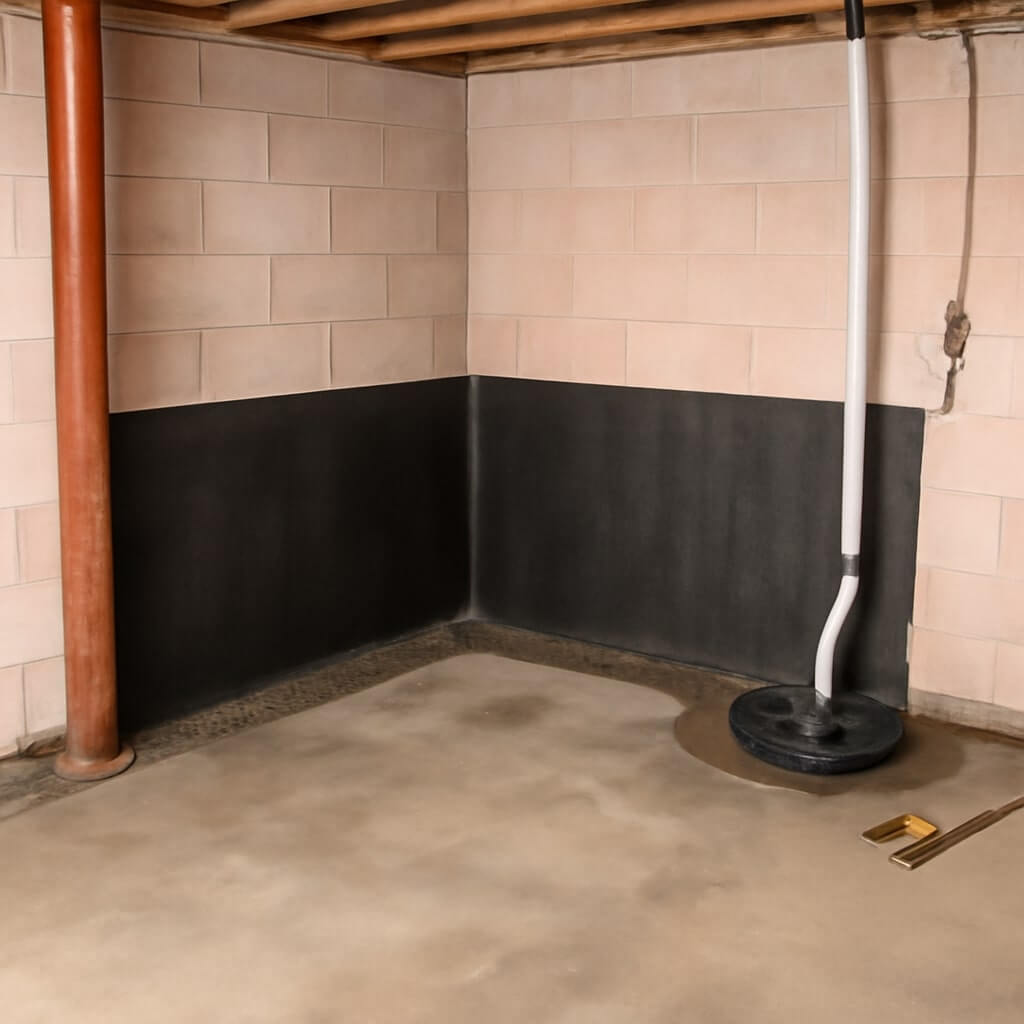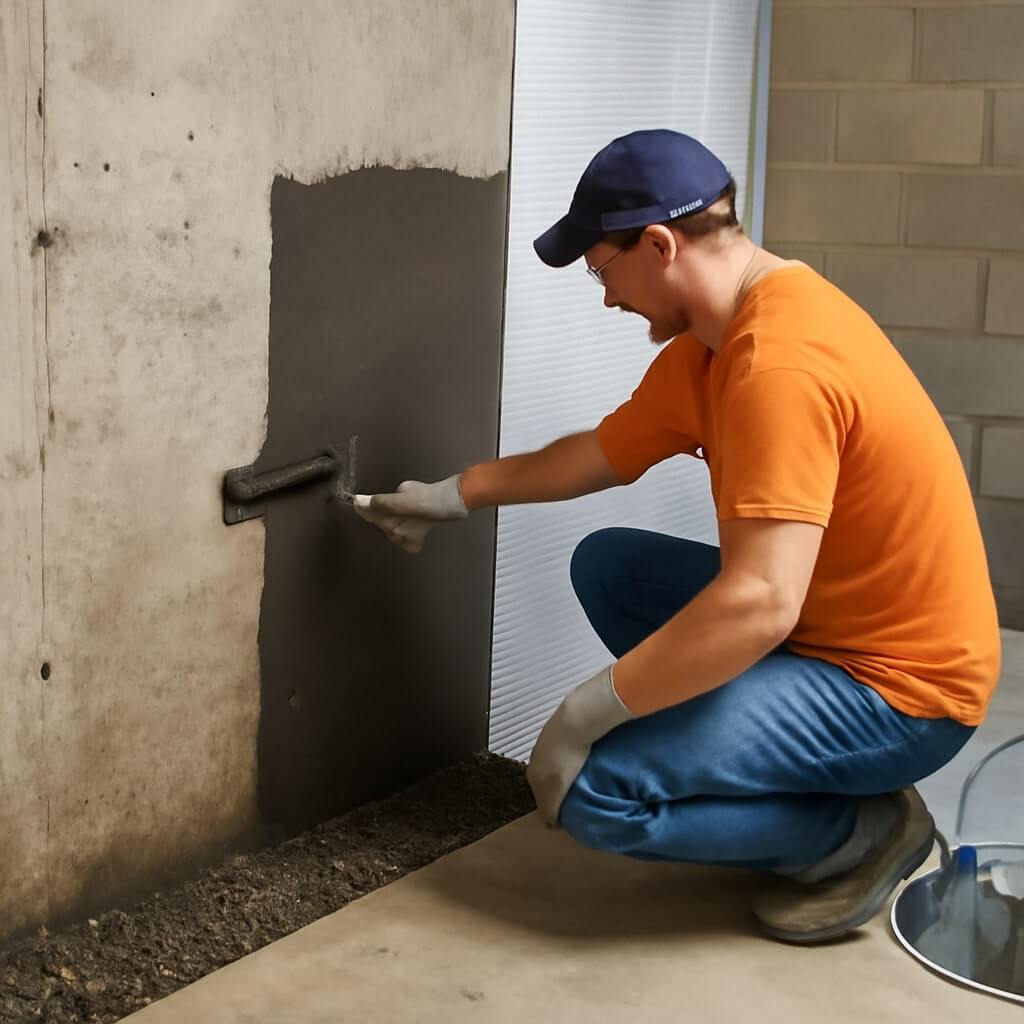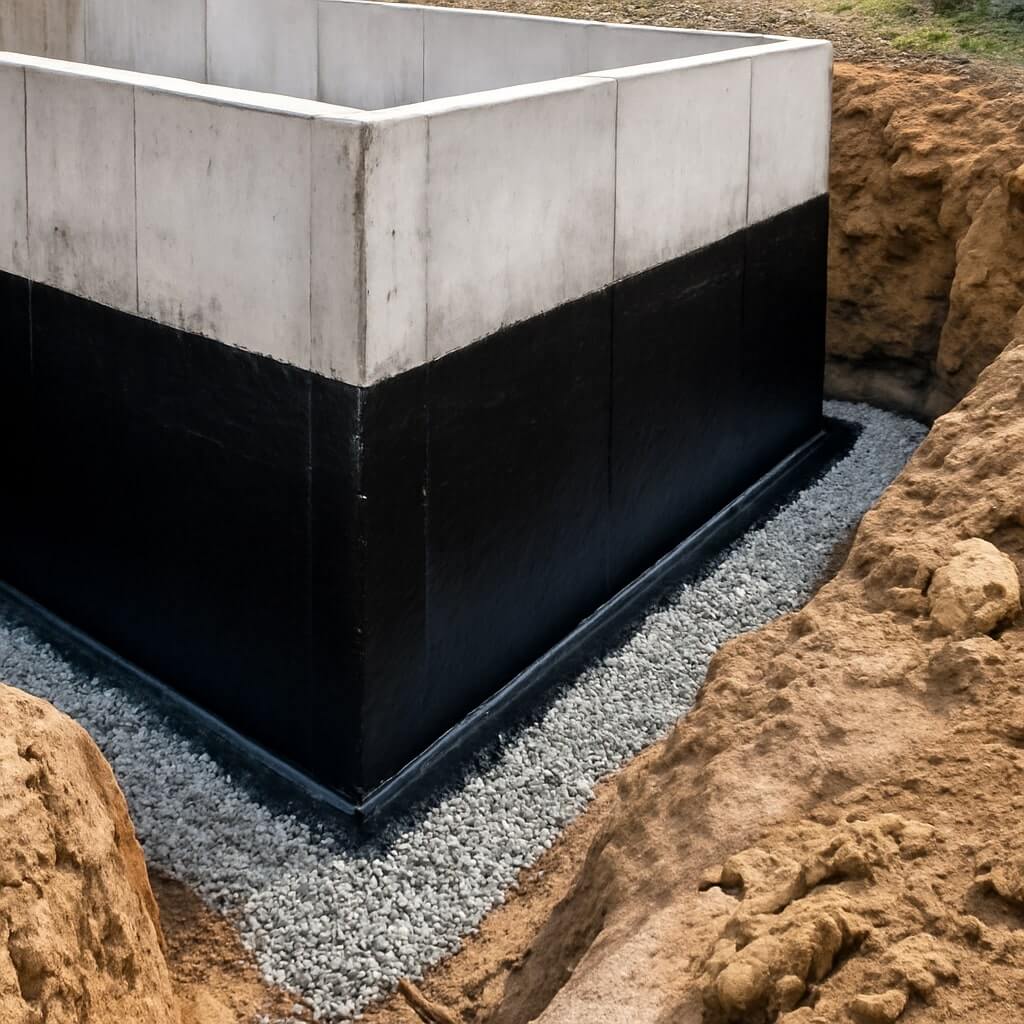A waterproof basement floor is crucial for protecting your home from moisture damage, mold growth, and structural issues. Whether you’re renovating your basement or building a new one, choosing the right waterproof flooring solution can save you money and stress in the long run. In this guide, we’ll cover the best flooring types, benefits, installation tips, and answers to common FAQs.
Why Waterproof Basement Flooring Matters
Basements are inherently vulnerable to moisture due to their below-ground location. Poor ventilation, groundwater seepage, and condensation can lead to:
- Mold and mildew growth
- Warped floors and walls
- Unpleasant odors
- Structural deterioration
Installing waterproof flooring is a proactive way to protect your basement investment.
Best Waterproof Flooring Options for Basements
Here are the most popular and effective waterproof basement flooring types:
1. Luxury Vinyl Plank (LVP)
- Waterproof rating: High
- Durability: Scratch-resistant, pet-friendly
- Appearance: Mimics real wood or stone
- Cost: $2–$5 per sq. ft.
2. Epoxy Coated Concrete
- Waterproof rating: Excellent
- Durability: Industrial-strength finish
- Maintenance: Very low
- Cost: $3–$12 per sq. ft.
3. Ceramic or Porcelain Tile
- Waterproof rating: High
- Aesthetic: Timeless, customizable
- Maintenance: Easy to clean
- Cost: $1–$15 per sq. ft.
4. Rubber Flooring
- Waterproof rating: Very high
- Comfort: Soft underfoot, anti-slip
- Best for: Home gyms, kids’ playrooms
- Cost: $2–$8 per sq. ft.
5. Engineered Vinyl Tile (EVT)
- Waterproof rating: Superior
- Installation: DIY-friendly
- Best for: High-moisture environments
- Cost: $3–$6 per sq. ft.
Installation Tips for Waterproof Basement Flooring
- Inspect and repair: Ensure there are no cracks or leaks in the concrete slab.
- Use a vapor barrier: This adds an extra layer of protection against moisture.
- Level the floor: Uneven surfaces can affect installation quality.
- Consider professional help: Especially for epoxy or tile installations.
Cost to Waterproof a Basement Floor
| Flooring Type | Avg. Cost Per Sq. Ft. | Total Cost (500 sq. ft.) |
|---|---|---|
| Luxury Vinyl Plank | $2–$5 | $1,000–$2,500 |
| Epoxy Coating | $3–$12 | $1,500–$6,000 |
| Ceramic Tile | $1–$15 | $500–$7,500 |
| Rubber Flooring | $2–$8 | $1,000–$4,000 |
| Engineered Vinyl Tile | $3–$6 | $1,500–$3,000 |
FAQs About Waterproof Basement Flooring
What is the best waterproof flooring for a finished basement?
Luxury vinyl plank and epoxy-coated concrete are among the best options due to their durability, water resistance, and aesthetic appeal.
Can I install waterproof flooring over a concrete basement slab?
Yes. Most waterproof floors, especially vinyl and epoxy, are designed to be installed directly over concrete.
How do I maintain my waterproof basement floor?
Regular sweeping, occasional mopping with mild cleaner, and checking for cracks or gaps will keep your floor in top shape.
Do I need a subfloor in the basement?
Not always. Some flooring types like epoxy or vinyl plank can be installed directly, but using a subfloor with vapor barrier is ideal for extra insulation and moisture protection.
Is waterproofing the floor enough to stop basement leaks?
Waterproof flooring protects against surface moisture but may not solve deeper issues like foundation leaks or poor drainage. Full waterproofing may require sealing walls and improving exterior drainage.
Final Thoughts
Choosing the right waterproof basement floor not only enhances your home’s value but also safeguards against long-term moisture problems. From vinyl plank to epoxy, there’s a solution for every style and budget. Combine your flooring with smart waterproofing practices to enjoy a dry, comfortable basement year-round.



